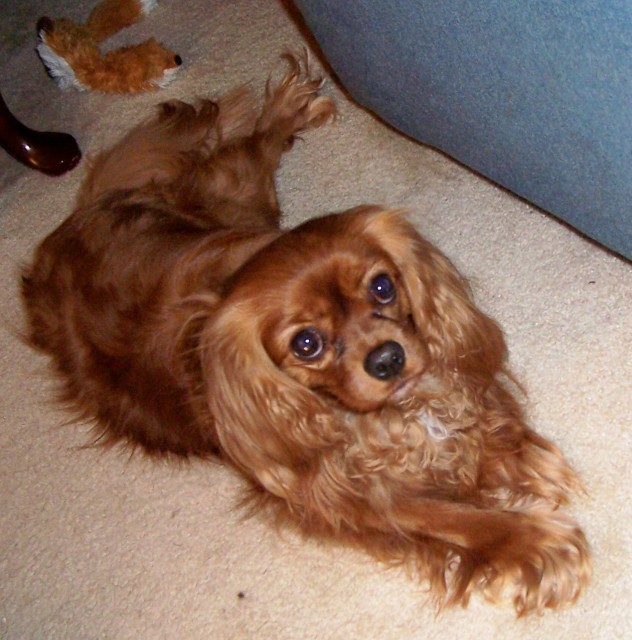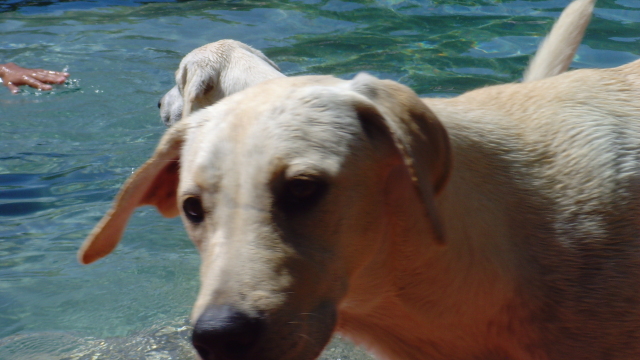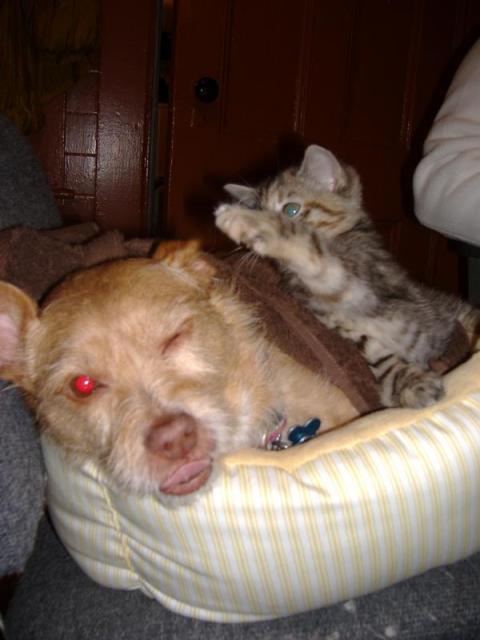QuestionHello, I have an almost 10-year-old male cocker spaniel who is a bit on the hyper side but otherwise a good, sweet little dog. Whenever we have people over that have babies, though, he goes nuts. Not nuts in a mean way, but he gets so worked up and anxious because he wants to lick the child and constantly bug them. When he cannot be near the dog, he just whimpers and cries like mad the whole time. We cannot get him to calm down at all, and it it always very stressful. He does not try to bite the children or be aggressive, but it is almost as if he thinks the baby is food or a toy because he once got a little close and took the child's sleeve in his mouth because he wanted to pull the baby down to him. It's like he doesn't really understand what the baby is. We do not have children ourselves, but we now have a new baby niece and I dread when they will come to visit with her because I know my dog will be a pain in the ass the entire time. Our other cocker spaniel is calm and really doesn't care.
Are there things we can do so that he won't act this way? I love him so much and he is my baby, but when babies come to visit (which is not that often), he just turns into a nutcase and never stops crying and whimpering. He just won't settle down.
What can we do?
Thank you.
Rachel
AnswerDogs need to be heavily socialized to people of all ages, and especially babies (which have no pheromones, smell oddly, make strange noises and sudden movements.) At age 10, your dog is very much past the age of being able to manage his excitement/anxiety when presented with any life form that is essentially unidentifiable to him. The kindest thing you can do for this dog is to put him into a safe room (with securely locked door so children cannot access) about 30 minutes before the young child is scheduled to appear. You can randomly "isolate" him in this manner several times a week for short periods (starting with five minutes and then up to 30) to habituate him to this experience. Give him a very special treat and some toys he would not otherwise see when you place him in this room; do not pet him or overly stimulate him, simply close the door and leave him there. Dogs have no real sense of "time" so as he becomes habituated, 30 minutes might as well be three hours. Ignore his protestations (if he scratches at door, cries, whines, barks) until it is time for him to be allowed out of the room and IMMEDIATELY follow this confinement with something very special, like a walk, a game with a beloved toy, etc. You will be doing yourself, the dog and the visitors a huge favor by giving him this confinement. It is not at ALL inhumane, and in fact may very well prevent him from inadvertently injuring a child and thereby putting himself, and you, at jeopardy. Remember: do NOT anthropomorphize by ascribing your projected emotions onto the dog. Such humane confinement will in no way harm him.

 Dog light and shadow chasing
Question
Jenni
My 3 year old Cavalier King Charles Span
Dog light and shadow chasing
Question
Jenni
My 3 year old Cavalier King Charles Span
 Post bladder surgery potty training for INDOORS!
QuestionTiki
QUESTION: Dear Dr. Connor,
My 10 ye
Post bladder surgery potty training for INDOORS!
QuestionTiki
QUESTION: Dear Dr. Connor,
My 10 ye
 Agressive 1 yr old mini goldendoodle
Question
our millie
My husband and I got our min
Agressive 1 yr old mini goldendoodle
Question
our millie
My husband and I got our min
 Psychological trauma
Question
Izzy
I recently took my 1 year old dog to a fr
Psychological trauma
Question
Izzy
I recently took my 1 year old dog to a fr
 My dog is shaking and hiding under my bed recently
QuestionRorrie and Pencil
QUESTION: My dog, Rorr
My dog is shaking and hiding under my bed recently
QuestionRorrie and Pencil
QUESTION: My dog, Rorr